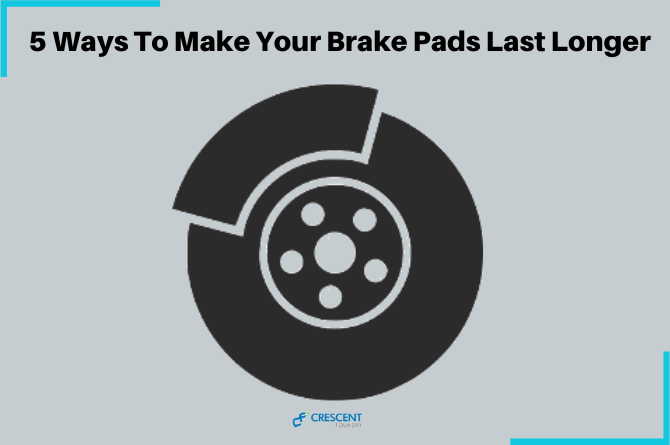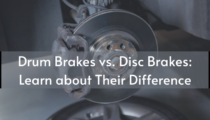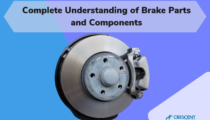The advancement in technology has brought about several transformations in…

5 Ways To Make Your Brake Pads Last Longer
Brakes are essential for any automotive vehicle for its functionality and safety aspect. A car’s braking system has several components that allow the vehicle to come to a complete stop. Disc brakes use callipers to make brake pads squeeze against the rotor discs to stop it from spinning. Brake pads suppliers in India recommend changing brake pads every 32000 to 120000 kilometres of journey. Continuing with worn out brakes can be risky and ineffective to a great extent. But changing the pads can also cost you a fortune.
So, do you compromise with safety or replace the pads? Read on to know the top 5 ways to make your brake pads last longer.
How does brake pad wear happen?
Brake pads in a disc braking system use friction to stop the rotors from rotating. This creates heat energy which is dissipated throughout. The pushing of the callipers against the pads causes wear and tear from the friction, heat and contact.
While sometimes the wear can be uniform, in some cases the brake pads wear out unevenly. That is when they may not work effectively and can even make grinding or squeaking sounds. According to the best brake rotor manufacturers in India, the way you drive your vehicle can determine the longevity of the complete braking system, including the pads.
How to make brake pads last longer?
The durability of brake pads depends on the quality of the brake parts. Also, there are certain practices that you can undertake to optimise the usage of brake pads.
-Reduce The Speed
One of the easiest practices that you can inculcate in your driving is to keep the vehicle at a moderate speed. Putting a complete stop to a vehicle while it is in high speed is unquestionably the leading factor in early brake pad wear. Coming to a complete halt from a higher speed like 100 kmph to 0 kmph puts more strain on the brake pads. Rather, drive/ride with a slower speed, so that you can apply brakes without causing much stress on the pads and spend 33% less energy.
-Practice Engine Braking
Engine braking is a great way to reduce wear on the brake pads while having enough control over the vehicle. Most brake pad manufacturers in India suggest letting off of the clutch and accelerator pedals to improve the process control of an automotive machine. However, remember that your car’s deceleration is influenced by your speed, the angle of the surface, and the gear you are in. So what is the benefit? Because the vehicle will be moving slower, you can simply use engine brakes to bring the vehicle to rest. However, make sure you maintain a safe distance from the vehicles or objects in front of you.
-Avoid Brake Riding
If you have the habit of driving/riding while accelerating and applying brakes at the same time, you should discontinue that for the durability of brake pads. While driving, you run the risk of applying light or continuous pressure to the brake, which is not a safe practice. This eventually leads to continuous friction of the brake pads against the rotors, causing them to degrade at a faster rate. Therefore, you can keep your left foot firmly planted on the ground and only use your right foot for the purpose of braking and accelerating.
-Flush The Brakes
Did you know it is recommended by brake pads suppliers in India to flush your brakes every two years? Flushing or replacing the brake fluid completely every couple of years, keeps the brakes in ideal condition. It is because brake fluid can be hydrophilic, i.e., attracts water.
Water present in your vehicle’s braking system boils due to the heat generated by the application of brakes. This is particularly more in cases of heavy or emergency braking. The moisture in the braking system can not only reduce the efficiency of brakes but also can corrode different parts of the braking system.
-Don’t Overload The Vehicle
The condition of your brake pads depend on the mass of your vehicle on a regular basis. The more you load your vehicle, the more momentum (speed) it will have when you accelerate. As a result, when you apply the brakes, it will take more force to bring it to a stop. Thus, it is ideal to keep your vehicle off of the additional accessories or alteration to keep brake pads replacements away.
Implementing these practices can reduce the strain on your vehicle’s braking system to a great extent. However, since brake pad wear can go without detection, it can be risky. Hence, you must ensure the brake parts are frequently checked and maintained to avoid any issue with effective braking.





